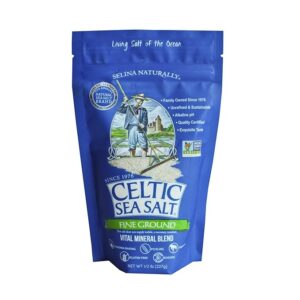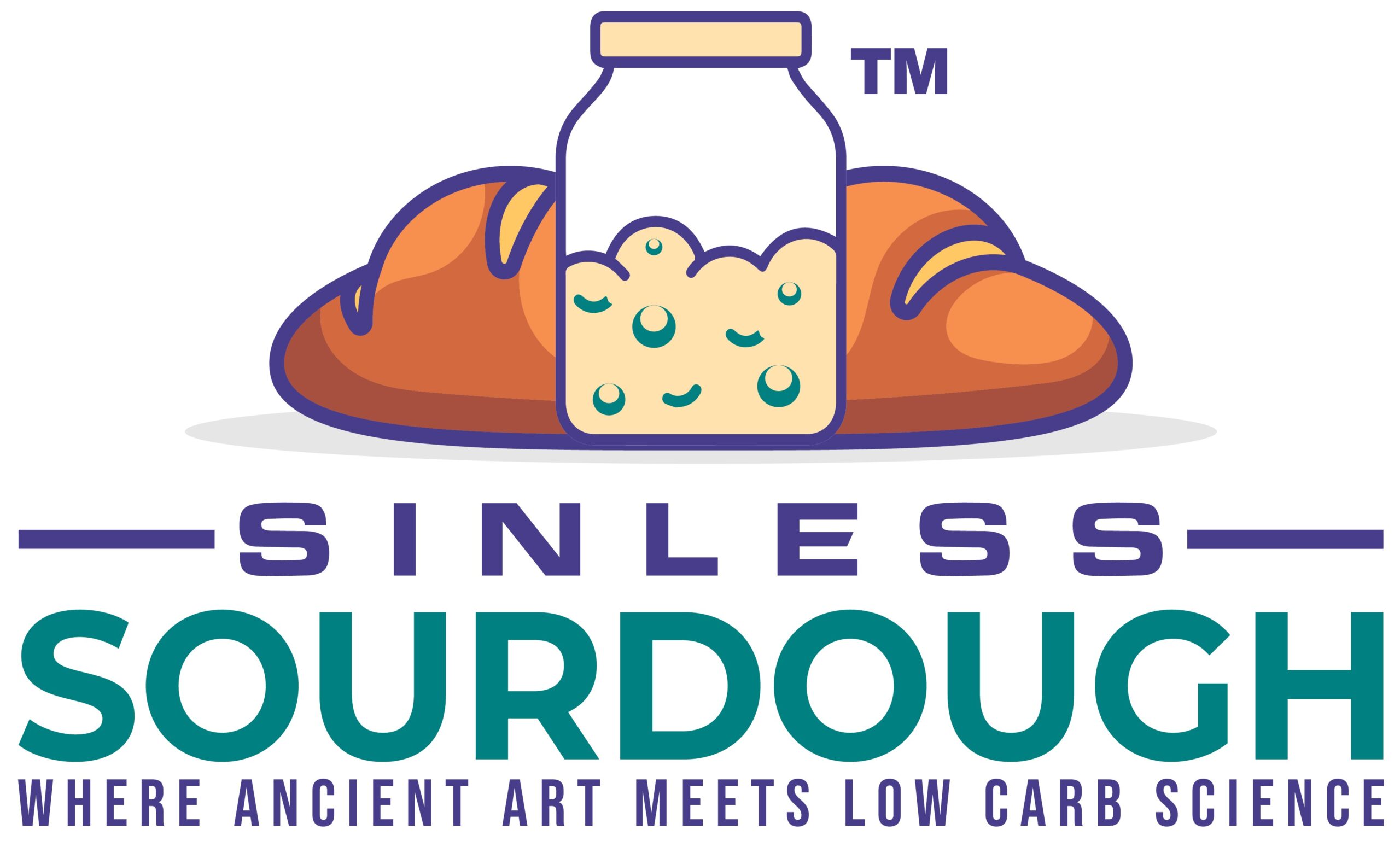Why Celtic Salt Enhances Sinless Sourdough
In the creation of Sinless Sourdough breads and baked goods, you can use any salt of your choice, including the one you already have in your kitchen. Celtic salt can be used in all 3 series of Sinless Sourdough breads and baked goods. However, I prefer to use Celtic salt for its added health benefits.
Rich in Essential Minerals
Celtic salt is rich in essential minerals, such as magnesium, potassium, and calcium. This mineral content not only enhances the flavour of the bread but also contributes to its nutritional value.
Added Health Benefits
By incorporating Celtic salt into your recipes, you ensure that your baked goods provide these vital nutrients, making your Sinless Sourdough not only delicious but also a healthier choice.
Preparation Tip
If you choose to use Celtic salt, make sure it’s fine ground to be well incorporated into the dough.

Selina Naturally Celtic Fine Ground Salt Amazon Links:
Why Celtic Salt Enhances Sinless Sourdough
Historical Significance
Celtic sea salt, also known as sel gris (gray salt), has been harvested for centuries along the coast of Brittany, France. It’s considered an artisanal, unrefined sea salt.
Nutritional Profile
Celtic salt offers a unique mineral composition:
- Contains over 80 trace minerals and elements
- Lower in sodium chloride compared to regular table salt (about 82% vs. 97-99%)
- Rich in magnesium, potassium, calcium, and other trace minerals
- Retains natural iodine content from sea algae
Carb Count
Celtic salt and regular table salt have essentially the same carbohydrate content—zero grams per serving. Both types of salt contain no carbohydrates, making them nutritionally identical in this regard.
Characteristics
- Light grey in colour due to the clay and sand from the salt flats where it’s harvested
- Moist texture with about 13% residual moisture content
- Large, coarse crystals
Culinary Properties
Celtic salt has unique culinary characteristics:
- Complex, briny flavour profile
- Adds mineral content to dishes
- Can be used in cooking or as a finishing salt
- Dissolves quickly due to its moisture content
Contributions to Baking
- Flavour: Enhances overall taste profile of baked goods
- Fermentation: Mineral content may support yeast activity in bread making
- Texture: Can contribute to crust development in bread
- Preservation: Acts as a natural preservative in baked goods
Health Considerations
- Often considered healthier than refined table salt due to its mineral content
- May be beneficial for maintaining electrolyte balance
- Lower sodium content may be advantageous for those monitoring sodium intake
- Not iodized, so additional iodine sources may be needed in the diet
Use in Low Carb Sourdough
While not specifically mentioned in the search results, Celtic salt can be used in low carb sourdough baking:
- Can enhance flavour complexity in sourdough bread
- Mineral content may support sourdough culture health
- May contribute to better crust development
Additive Free
Regular table salt typically contains various additives to enhance its functionality and prevent clumping. The primary additives include anti-caking agents such as sodium aluminosilicate, calcium silicate, magnesium carbonate, and silicon dioxide, which help keep the salt crystals from sticking together. Additionally, many table salts are iodized to combat iodine deficiency disorders, with iodine usually added in the form of potassium iodide or sodium iodide. Dextrose, a type of sugar, is also included to stabilize the iodine, while sodium ferrocyanide serves a dual purpose as both an anti-caking agent and a means to ensure the salt pours easily. In contrast, Celtic salt is free of additives, including anti-clumping agents and sugar. Valued for its unique flavour profile and mineral content, Celtic salt can be used as a healthier alternative to refined salt in recipes like Sinless Sourdough breads and other baked goods.
Storage
To store Celtic salt effectively, it is crucial to keep it in a cool, dry place to prevent moisture absorption, which can lead to clumping. The best storage options include airtight containers made of glass or ceramic, as these materials help maintain the salt’s quality without introducing contaminants. It is advisable to avoid using cardboard or plastic containers, as they can allow moisture and odours to affect the salt. For added protection against environmental factors, consider keeping the salt in its original packaging inside a sealed container. For long-term storage, ensure that the container is tightly sealed to maintain the salt’s integrity and flavour. Notably, Celtic salt does not require additives like regular table salt, making proper storage all the more important to preserve its natural qualities.
